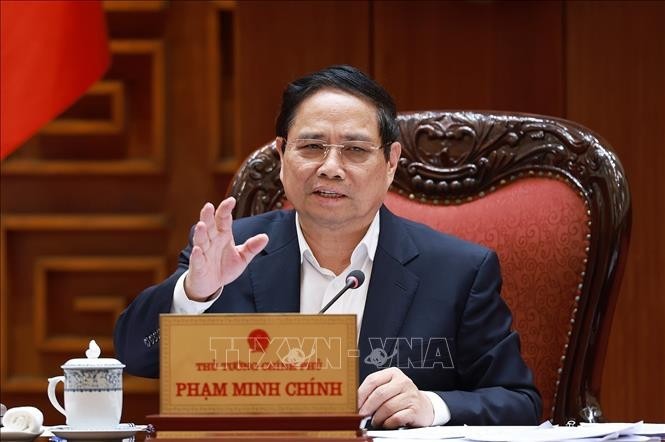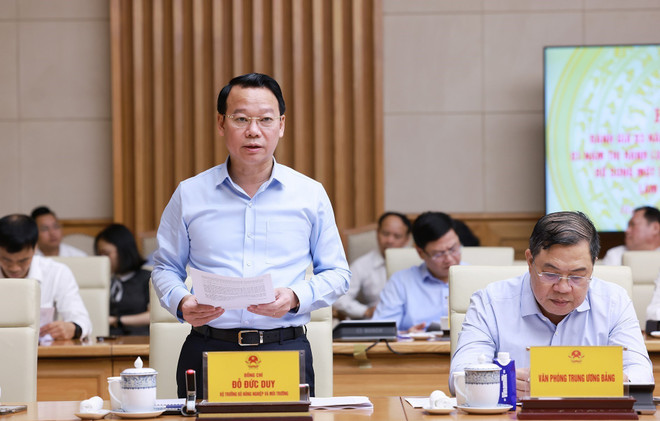PM chairs conference reviewing implementation of land law, policies
PM Chinh said that after three years of implementing Resolution 18-NQ/TW on continuing to innovate and perfect institutions and policies, improving the effectiveness and efficiency of land management and use, and one year of enforcing the 2024 Land Law, the legal policies on land have been carried out synchronously, achieving positive results.

Prime Minister Pham Minh Chinh, Politburo member and Secretary of the Government's Party Committee, chaired the committee’s conference on July 10 to review three years of implementing Resolution No. 18-NQ/TW dated June 16, 2022 and one year of enforcing the 2024 Land Law, aiming to seek proposals to revise Resolution 18-NQ/TW as a basis for future amendments and supplements to the Land Law.
Opening the conference, PM Chinh said that after three years of implementing Resolution 18-NQ/TW on continuing to innovate and perfect institutions and policies, improving the effectiveness and efficiency of land management and use, and one year of enforcing the 2024 Land Law, the legal policies on land have been carried out synchronously, achieving positive results.
The legal frameworks have become more effective in practice, addressing obstacles, enhancing state management, supporting socio-economic growth, ensuring national defence and security, and building trust among people, businesses, and investors, he noted.
However, the PM acknowledged that shortcomings remain. Certain policies have not kept pace with the restructuring of two-tier local administrations or the country’s development requirements in the new period.

PM Chinh noted that there are still differences in land recovery rules between public and private projects, and delays in procedures for acquisition, compensation, resettlement, and land-use changes. Some financial reforms under Resolution 18-NQ/TW have yet to be fully institutionalised. The State’s role in land valuation and regulation remains unclear, while speculative land auctions and price manipulation persist in various regions.
He identified causes such as inconsistent awareness of land’s role in the socialist-oriented market economy, fragmented legal provisions, and inadequate attention to land-use planning and resource mobilisation in some areas.
Following the Politburo's direction, the Government's Party Committee is conducting a formal review of both Resolution 18-NQ/TW and the 2024 Land Law. Based on this, the committee will propose adjustments and supplements to the Resolution, laying a foundation to amend and supplement the 2024 Land Law.
The Government leader stressed the need for high-quality results in a short period of time. He asked participants to finalise the report for the Politburo to submit to the Party Central Committee, including updates to policy directions and practical measures supporting the revision of the Land Law.
He requested delegates to frankly assess the situation and results of the implementation of Resolution No. 18-NQ/TW and the 2024 Land Law, especially objectively reflecting issues arising from real life, especially issues related to planning, land use plans, land allocation, land lease, land recovery, compensation, resettlement; land recovery for socio-economic development for national and public interests; adjusting and supplementing solutions on land price determination; and land issues involving foreign elements./.
 Loading
Loading  Tiếng Việt
Tiếng Việt English
English 中文
中文


